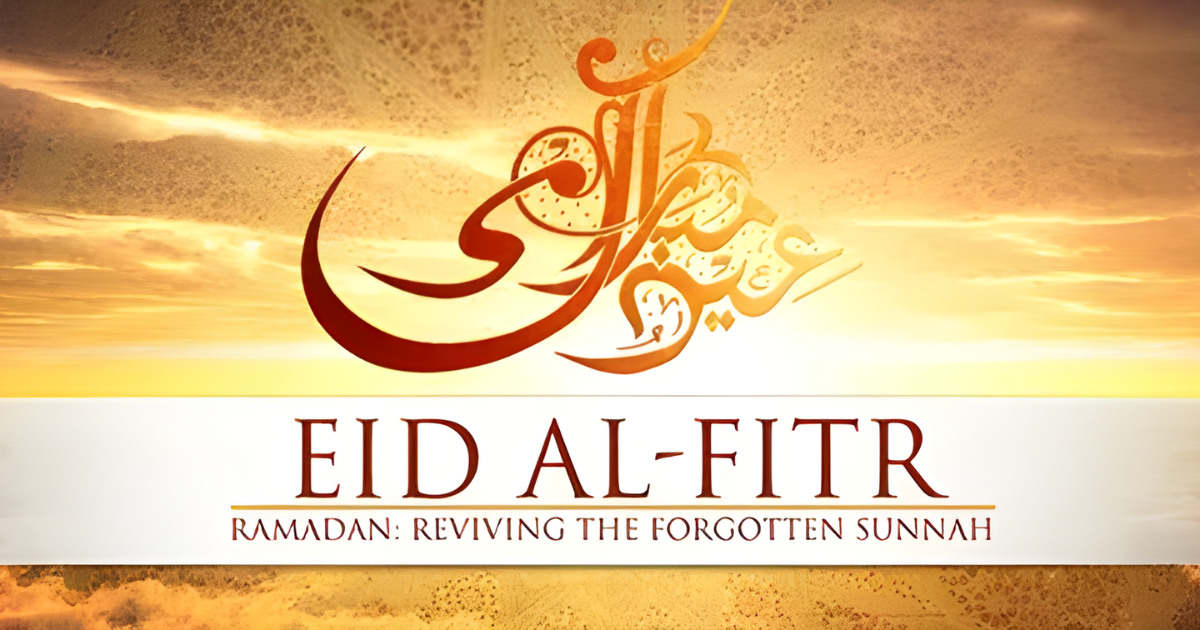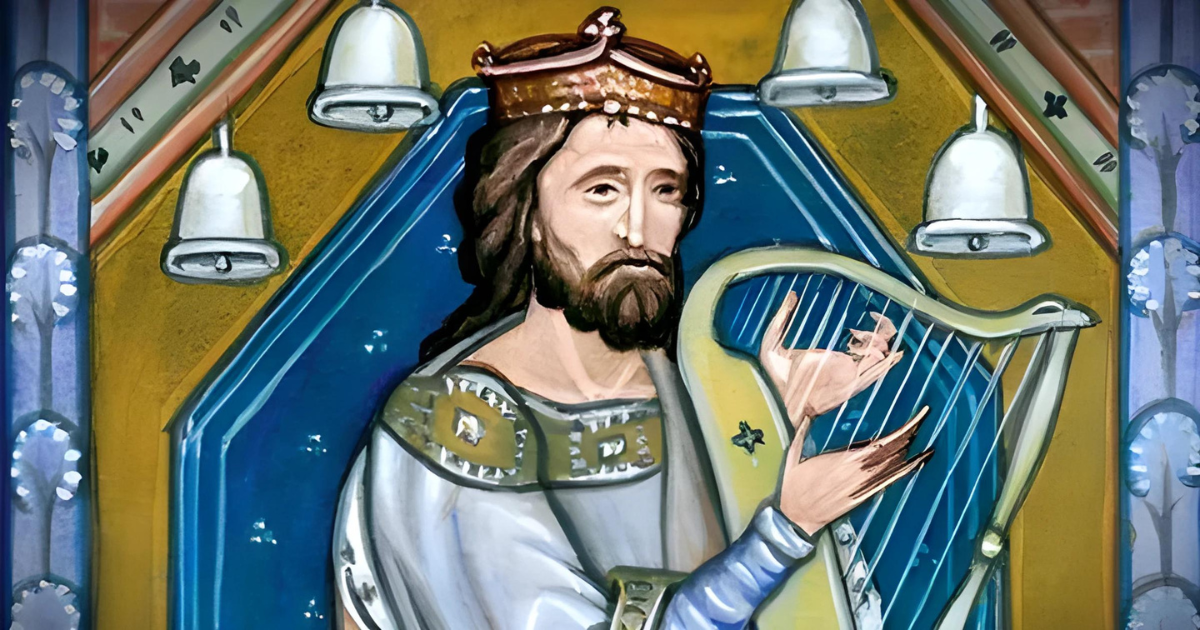Introduction
Eid al Fitr, often called Eid, is a significant and joyous Islamic holiday that marks the end of the holy month of Ramadan. In 2024, Eid al Fitr is expected to be observed on Wednesday, April 10th, subject to the sighting of the new crescent moon.
This celebration delights Muslims all over the world, not only as a time for introspection and community building but also as a moment of sheer happiness.
Read More: Digital News Planet.
The Significance of Eid al Fitr
Eid al Fitr holds deep spiritual and cultural significance for Muslims. It is a time to celebrate the successful completion of the month-long Ramadan fast, during which Muslims abstain from food, drink, and other worldly pleasures from dawn to dusk.
Eid al-Fitr is a celebration representing the culmination of intense devotion, self-reflection, and spiritual purification. It is a time to express gratitude to Allah for the blessings and guidance received during Ramadan and to renew one’s commitment to the faith.
The Timing and Observance of Eid al Fitr
Eid al Fitr is celebrated on the first day of Shawwal, the tenth month in the Islamic lunar calendar. The sighting of the new crescent moon, which signifies the beginning of the new month, determines the precise day of Eid al Fitr.
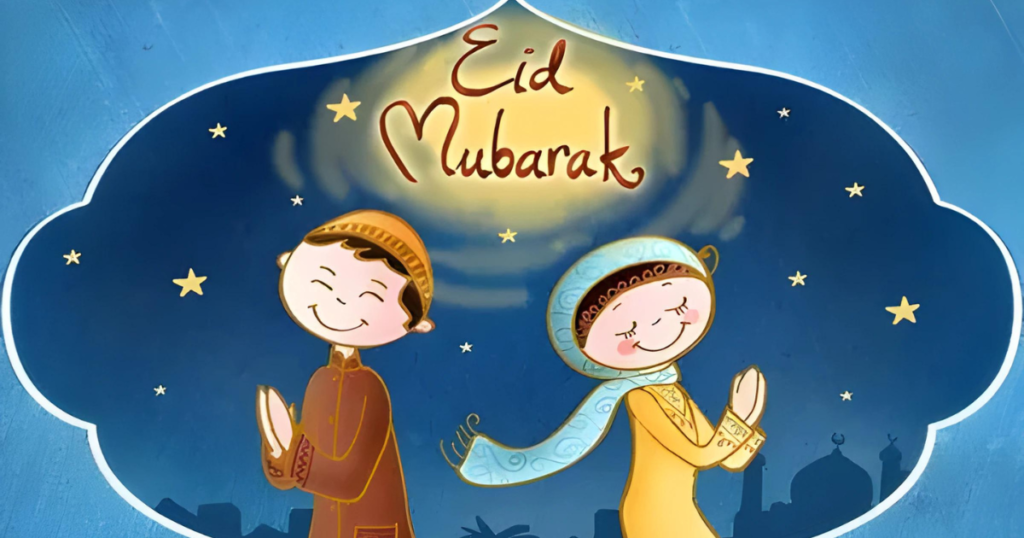
Preparations for Eid al Fitr
In the days leading up to Eid al Fitr, Muslims prepare to welcome the joyous occasion. These preparations include:
Zakat al-Fitr
One essential preparation for Eid al-Fitr is the payment of Zakat al-Fitr, a charitable obligation due before the Eid prayers. Zakat al-Fitr is a fixed amount of money or food that each Muslim must give to the less fortunate, ensuring that everyone can participate in the festivities.
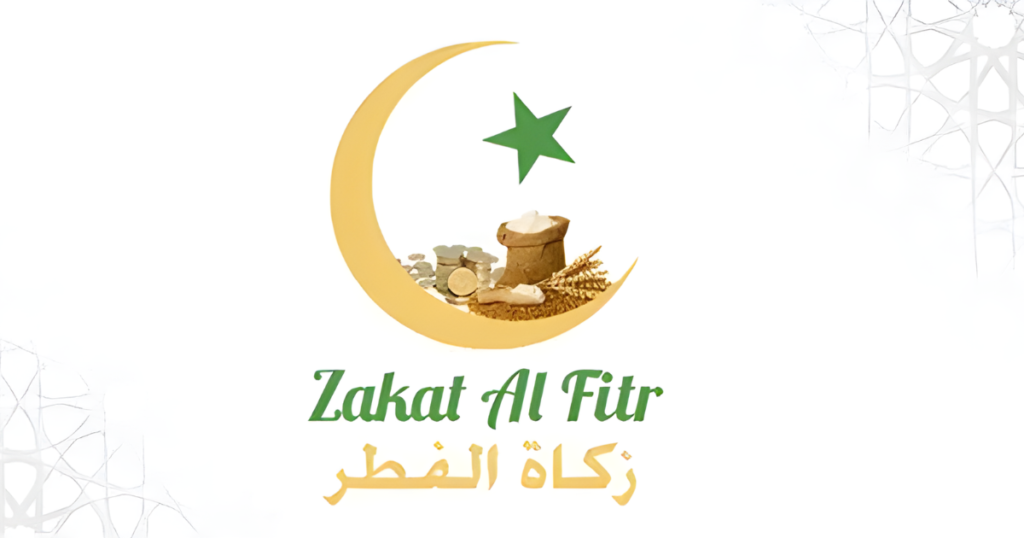
Eid Attire and Grooming
Muslims often take great care in their appearance for Eid al Fitr. This includes purchasing new clothes, wearing their best outfits, and engaging in grooming rituals such as getting haircuts, applying henna, and using perfumes.
Eid Decorations and Preparations
Homes and communities are often decorated with festive lights, banners, and other ornaments to create a joyous atmosphere. Preparations include cleaning and decorating houses, preparing traditional Eid dishes, and organizing community gatherings and celebrations.
The Eid al Fitr Celebrations
The celebrations of Eid al Fitr are not just a series of rituals and traditions but a powerful manifestation of unity and togetherness within the Muslim community.
Eid Prayers
The first and most important ritual of Eid al Fitr is the Eid prayer, which is performed in the morning. Muslims gather in large congregations, often in mosques or open public spaces, to offer the Eid prayer and listen to a sermon delivered by the Imam.
Visiting and Greetings
After the Eid prayer, Muslims often visit their relatives, friends, and neighbors, exchanging greetings and good wishes. This is a time to strengthen family ties, resolve differences, and share in the joy of the occasion.
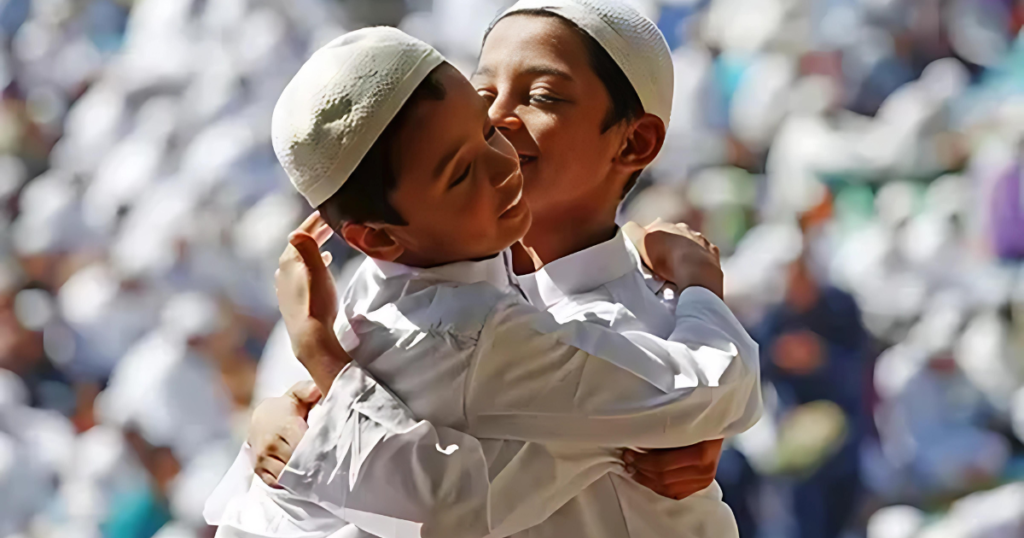
Eid Gifts and Charity
Giving gifts, especially to children, is integral to Eid al-Fitr celebrations. To further emphasize solidarity and compassion, Muslims are also encouraged to help the less fortunate and give to organizations.
Eid Feasts and Delicacies
The celebrations of Eid al Fitr are often marked by the sharing of traditional Eid delicacies and the hosting of festive meals. These gatherings bring families and communities together, fostering a sense of unity and togetherness.
Eid Festivities and Gatherings
In many Muslim-majority countries and communities, Eid al-Fitr is celebrated with vibrant festivities, including carnivals, parades, cultural performances, and community-based activities. These events allow people to unite, enjoy the celebrations, and strengthen their bonds.
Eid al Fitr Traditions and Customs
Several traditions and practices associated with Eid al Fitr have been passed down through the years. These practices hold deep cultural and religious significance for Muslims around the world.
Eid Greetings and Wishes
A common tradition during Eid al Fitr is the exchange of greetings and wishes, such as “Eid Mubarak,” which means “Blessed Eid.” Hugs, handshakes, and sharing sweets or small gifts often accompany these greetings.
Eid Attire and Appearance
Dressing up in new or traditional clothing is essential to Eid al-Fitr celebrations. Men, women, and children often wear their finest outfits, including conventional garments such as thobes, saris, or other regional attire.
Eid Salah (Prayer)
The Eid salah, or Eid prayer, is a significant ritual performed on the morning of Eid al Fitr. Muslims gather in large congregations, often in mosques or open spaces, to offer the Eid prayer and listen to a sermon delivered by the Imam.
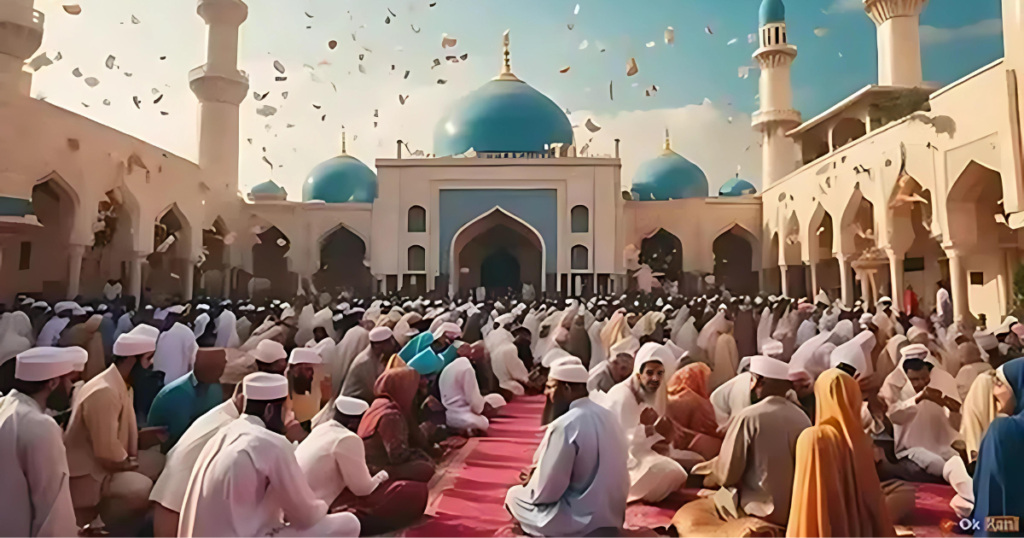
Eid Zakat and Charity
The payment of Zakat al-Fitr, a charitable obligation due before the Eid prayers, is a crucial tradition during Eid al-Fitr. This charitable deed guarantees that everyone may participate in the celebrations regardless of their financial situation.
Eid Sweets and Delicacies
Traditional Eid sweets and delicacies hold a special place in the celebrations. These may include dishes like Seviyan (vermicelli), Zarda (saffron-flavored rice), Shirin Polo (Persian sweet rice), and various types of cookies, pastries, and confections.
Eid Gatherings and Visits
Strengthening Bonds: The Essence of Eid al-Fitr Celebrations
The Global Celebration of Eid al Fitr: A Unifying FestivalEid al Fitr is celebrated by Muslims worldwide, with each region and community has unique traditions and customs. While the core rituals and celebrations remain consistent, the festivities can vary significantly based on local cultures and practices.
Eid al Fitr Celebrations in the Middle East
In the Middle East, Eid al Fitr is a national holiday, and the celebrations are often grand and elaborate. Countries like Saudi Arabia, Egypt, and the United Arab Emirates witness vibrant festivities, including parades, carnivals, and large-scale community gatherings.
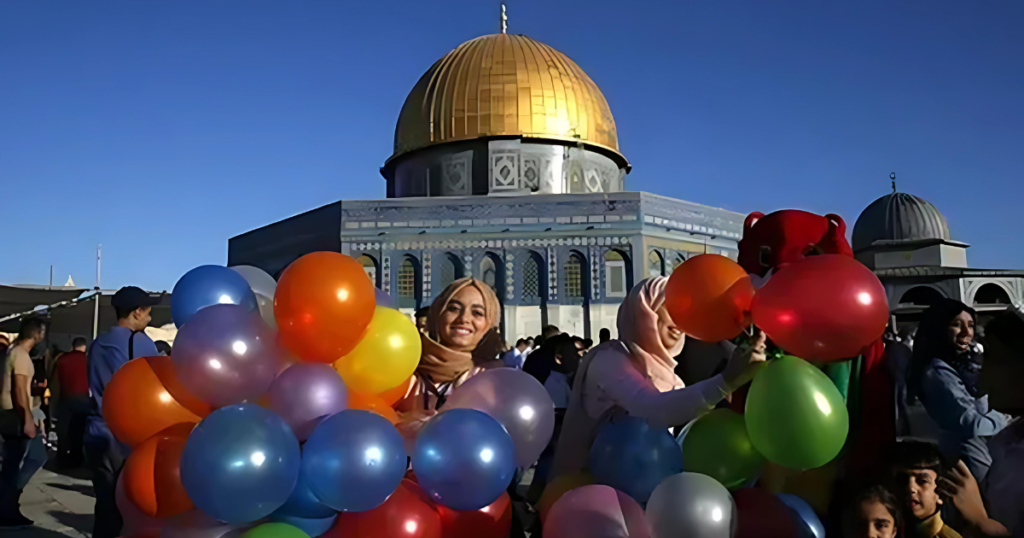
Eid al Fitr Celebrations in South Asia
The Indian subcontinent, including countries like India, Pakistan, and Bangladesh, is home to some of the most vibrant and colorful Eid al-Fitr celebrations. These festivities often incorporate rich cultural heritage, traditional attire, and delectable regional cuisine.
Eid al Fitr Celebrations in Southeast Asia
Southeast Asian nations such as Indonesia, Malaysia, and Brunei celebrate Eid al-Fitr in a distinctive way, including indigenous and Islamic customs. The festivities often include traditional dances and music and share traditional delicacies.
Eid al Fitr Celebrations in Africa
African Muslim communities celebrate Eid al Fitr with a strong emphasis on community, family, and cultural traditions. In Morocco, Sudan, and Nigeria, the celebrations can involve traditional drumming, dancing, and the sharing of local delicacies.
Eid al Fitr Celebrations in North America and Europe
Muslim communities in North America and Europe also enthusiastically observe Eid al Fitr, blending Islamic traditions with the cultural diversity of their respective regions. These celebrations include mosque gatherings, community-organized events, and the sharing of traditional Eid dishes.
The Spiritual Significance of Eid al Fitr
At the heart of Eid al Fitr lies the profound spiritual significance of the occasion. It represents the culmination of a month-long journey of self-reflection, devotion, and spiritual purification during the holy month of Ramadan.
The Virtues of Ramadan and Eid al Fitr
During Ramadan, Muslims engage in intense acts of worship, including fasting, increased prayer, and recitation of the Quran. These spiritual activities are thought to help them become more intimate with Allah, and experience heightened awareness and spiritual awakening.
Eid al Fitr celebrates the successful completion of this month-long spiritual journey, marking a time of gratitude, forgiveness, and the renewal of one’s commitment to the Islamic faith.
The Concept of Taqwa (God-Consciousness)
The essence of Eid al Fitr is rooted in the concept of Taqwa, which represents the attainment of God-consciousness and the development of a deep reverence and devotion to Allah. During Ramadan and the subsequent Eid al Fitr celebrations, Muslims strive to cultivate Taqwa, a guiding principle for their lives.
The Importance of Reflection and Introspection
The period of Ramadan and the celebration of Eid al Fitr encourage deep introspection and self-reflection. Muslims are encouraged to examine their spiritual, moral, and ethical conduct, seek forgiveness, and make amends for shortcomings or transgressions.
This process of reflection and personal growth is integral to the spiritual significance of Eid al Fitr, as it enables Muslims to renew their commitment to their faith and strive for a more righteous and fulfilling life.
The Community Aspect of Eid al Fitr
Eid al Fitr celebrates faith, community, and unity among Muslims. The festivities and traditions of Eid al Fitr strengthen the bonds of the ummah (the global community of Muslims).
Eid Prayers and Gatherings
The Eid prayers, which bring together large congregations of Muslims, are a powerful expression of the community aspect of Eid al Fitr. These gatherings foster a sense of unity as people from diverse backgrounds come together to celebrate their shared faith.
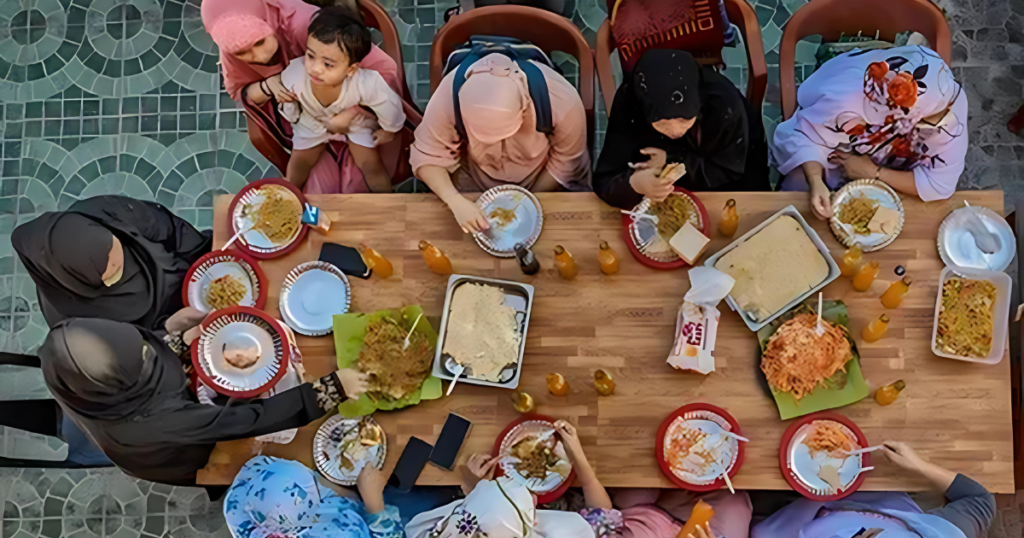
Eid Visits and Gatherings
The tradition of visiting family members, friends, and neighbors during Eid al Fitr is a testament to the importance of maintaining strong social ties within the Muslim community. These gatherings provide an opportunity to resolve conflicts, strengthen relationships, and share in the joy of the occasion.
Eid Charity and Zakat
The payment of Zakat al-Fitr, a charitable obligation during Eid al-Fitr, is a crucial aspect of the celebration’s community-oriented nature. Giving ensures everyone can partake in the festivities regardless of financial status and feel a sense of belonging.
Eid Festivities and Celebrations
The vibrant Eid al-Fitr festivities, such as parades, carnivals, and community-based events, unite people and foster a sense of shared identity and belonging. These celebrations allow people to connect, learn about each other’s cultural traditions, and strengthen the bonds of the ummah.
The Importance of Eid al Fitr in the Islamic Calendar
Eid al-Fitr is a significant date in the Islamic calendar. It marks the end of the holy month of Ramadan and the beginning of a new phase in Muslims’ spiritual journey.
The Connection to Ramadan
Eid al Fitr is inextricably linked to the month of Ramadan. It celebrates the successful completion of the fast and the spiritual growth and purification achieved during this time.
The observance of Ramadan and the celebration of Eid al Fitr are considered two of the five pillars of Islam, underscoring their critical importance in the Islamic faith.
The Lunar Calendar and Eid al Fitr
The date of Eid al Fitr is determined by the Islamic lunar calendar, which is based on lunar cycles. This connection to the lunar calendar emphasizes the deep-rooted tradition and cultural significance of Eid al Fitr within the Islamic faith.
The Symbolism of Renewal and Celebration
Eid al Fitr is a time of renewal, forgiveness, and celebration in the Islamic calendar. It marks the end of a period of intense spiritual devotion and the beginning of a new phase, during which Muslims are encouraged to carry forward the lessons and growth achieved during Ramadan.
The Impact of Eid al Fitr on Muslim Communities
The celebration of Eid al Fitr has a profound impact on Muslim communities worldwide, transcending religious boundaries and fostering a sense of unity, compassion, and shared identity.
The Unifying Effect of Eid al Fitr
Eid al-Fitr is a unified force, bringing together Muslims from diverse backgrounds, cultures, and socioeconomic statuses. The shared experience of fasting, spiritual reflection, and communal celebration during this time helps strengthen the bonds of the ummah and promotes a sense of belonging.
The Promotion of Social Welfare and Charity
The traditions of Zakat al-Fitr and the emphasis on charitable giving during Eid al-Fitr significantly impact the social welfare of Muslim communities. These acts of generosity and compassion help alleviate the burden of the less fortunate and foster a spirit of mutual care and support.
The Strengthening of Family and Community Ties
The traditions of visiting family members, resolving conflicts, and strengthening social bonds during Eid al Fitr contribute to Muslim communities’ overall well-being and cohesion. These practices help maintain strong family structures and promote a sense of belonging and interdependence.
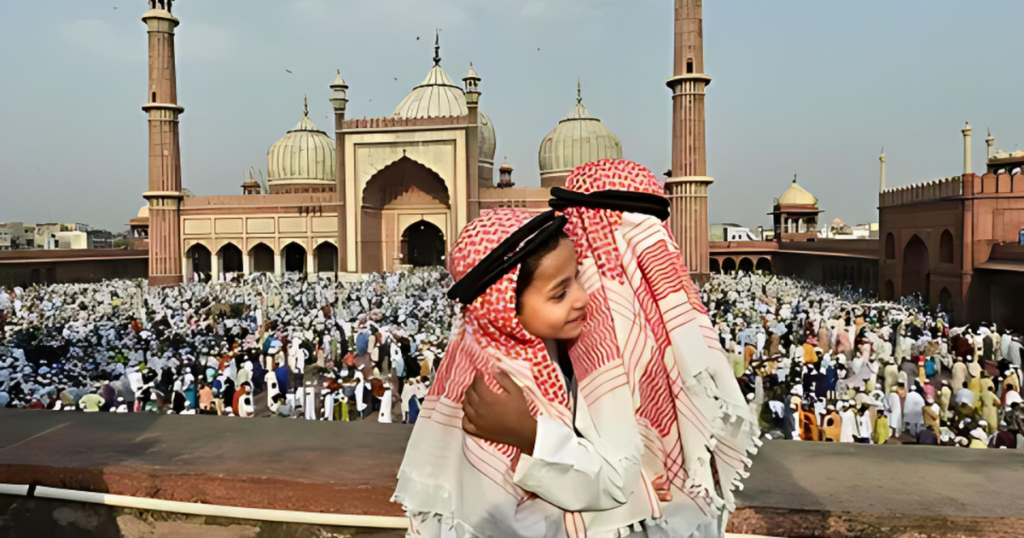
The Preservation of Cultural Heritage and Traditions
The celebrations of Eid al Fitr often incorporate unique cultural traditions and practices passed down through generations. This celebration of cultural diversity within the broader Islamic framework helps preserve and promote the rich tapestry of Muslim heritage worldwide.
Conclusion
Eid al Fitr is a profound and joyous celebration that transcends religious boundaries and serves as a unifying force for Muslims worldwide. By embracing the spiritual, community, and cultural aspects of this auspicious occasion, we can collectively strive to maintain the essence of this beloved Islamic holiday and foster a greater sense of unity, compassion, and spiritual growth.
As we look forward to the Eid al Fitr celebrations in 2024 and beyond, let us remember the lessons and blessings of Ramadan and rededicate ourselves to the principles of faith, community, and the betterment of humanity. May the spirit of Eid al Fitr continue to inspire us to be better versions of ourselves and to contribute positively to the world around us.
-
When is Eid?
Eid refers to two major Islamic festivals – Eid al Fitr and Eid al Adha. Eid al Fitr is celebrated at the end of the holy month of Ramadan, while Eid al Adha is celebrated approximately 70 days after Eid al Fitr.
-
When is Eid 2024?
In 2024, Eid al Fitr is expected to be observed on Thursday, May 9th, subject to the sighting of the new crescent moon. Depending on local moon sightings, the exact date may vary slightly in different regions.
-
When is Eid al Fitr 2024?
Eid al Fitr 2024 is expected to be celebrated on Thursday, May 9th, 2024, subject to the sighting of the new crescent moon. The date may differ in some regions based on local moon visibility.
-
What are the critical preparations for Eid al Fitr 2024?
The critical preparations for Eid al Fitr 2024 include:
Paying Zakat al-Fitr, a charitable obligation due before the Eid prayers
Purchasing new clothes and engaging in grooming rituals
Decorating homes and preparing traditional Eid dishes
Organizing community gatherings and celebrations -
What are the main rituals and traditions of Eid al Fitr 2024?
The main rituals and traditions of Eid al Fitr 2024 include:
Performing the Eid prayer in the morning
Visiting family, friends, and neighbors to exchange greetings and gifts
Enjoying traditional Eid delicacies and hosting festive meals
Participating in Eid festivities, such as carnivals, parades, and cultural events -
How is Eid al-Fitr 2024 celebrated globally?
Muslims worldwide celebrate Eid al Fitr 2024, with each region and community having unique traditions and customs. The celebrations can vary significantly, ranging from grand festivities in the Middle East to more community-based gatherings in North America and Europe.
-
What is the spiritual significance of Eid al-Fitr 2024?
Eid al Fitr 2024 represents the culmination of the spiritual journey undertaken during the holy month of Ramadan. It is a time of gratitude, forgiveness, and the renewal of one’s commitment to the Islamic faith, emphasizing the attainment of God-consciousness (Taqwa) and personal growth.

